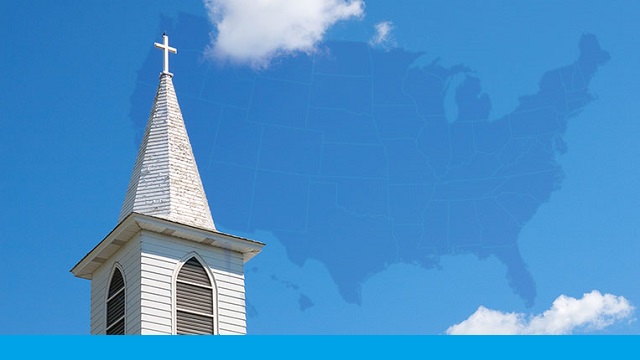A Torrent of Tyrants: How Local Churches Are Fighting Back

The news came down just in time for Sunday service. For all of the congregations, it had been a frustrating few weeks. Pastors in New York, North Carolina, and Mississippi had been fighting their state for the freedom they should have had all along: the right to gather, in their own creative and CDC-compliant ways, at church. But fortunately, while every locality is responding differently, every court is not. Religious liberty, they agreed, doesn’t stop when a virus starts.In Wake County, North Carolina, the response was almost immediate. In a matter of hours, local officials went from banning drive-through communion and offerings to completely reversing course. What changed? Attorneys at Alliance Defending Freedom had sent a letter, explaining how “illogical” it is to say church giving is unsafe but exchanging money in a grocery or other business isn’t. “We support the efforts of public officials to prioritize health and safety,” ADF’s Ryan Tucker pointed out, “but it is… unconstitutional to apply government orders in a way that singles out churches for harsher treatment. We are asking the county to repeal its ban and avoid the need for any litigation over the matter.”
The county listened, responding that same day with an updated order. Praising the quick action of Wake officials, ADF said that locals looked forward to being able to host drive-in services “with the freedom to safely serve communion and receive donations this Sunday without fear of government punishment.”
Elsewhere in New York, another injustice toward churches was also fixed in record speed. Leaders in Chemung County had pulled a similar stunt, arguing that local congregations were putting the community at risk with their parking lot services. But they had a change of heart after First Liberty Institute got involved, reminding them what the law actually said about the matter. The next day, the targeting stopped.
Down in Mississippi, it took a little more prodding to get hostile officials in line. But, thanks to U.S. District Judge Michael Mills, Holly Springs — which had even shut down midweek Bible studies — was ordered to stop with the local tyranny. As far as Mills was concerned, they weren’t just violating the church’s religious freedom, but its free speech, its freedom to assemble, its rights of due process, and the Mississippi Religious Freedom Restoration Act.
For First Pentecostal Church, it had been an Easter like no other. Not only did the police interrupt the service, but it stopped to give Pastor Waldrop a citation. “These were outrageous violations of these parishioners’ rights,” Thomas More Society argued. “On both occasions, Holly Springs law enforcement personnel ignored the fact that all church members present were practicing social distancing and complying with all applicable health requirements.” From now on, Judge Mills ruled, neither Holly Springs, nor its police force, will interfere with drive-in services.
Even when the rest of the country is closed, one thing that America should never have to re-open is religious freedom. As more churches weigh their next steps in the virus fight, FRC is here to help. For more on how your congregation should think about the upcoming changes and challenges, check out our new publication, “Guidelines for Reopening Your Church.”
Tony Perkins’s Washington Update is written with the aid of FRC senior writers.
RELATED ARTICLES:
EDITORS NOTE: This FRC-Action column is republished with permission. © All rights reserved.


Leave a Reply
Want to join the discussion?Feel free to contribute!